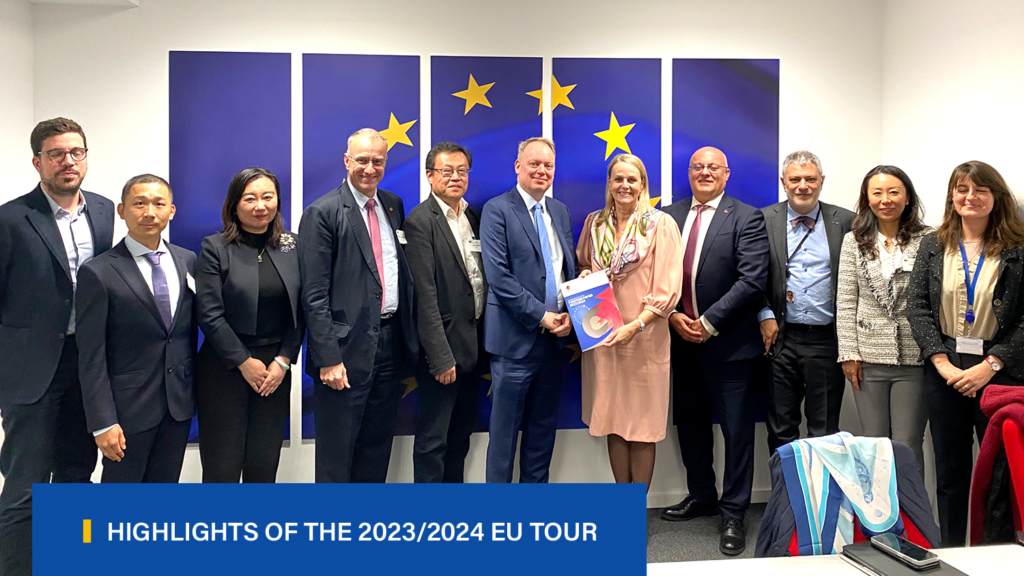
Highlights of the 2023/2024 EU Tour
On the week of 23rd October, a group of European Chamber industry representatives led by President Jens Eskelund travelled to Brussels and met with representatives from European Union (EU) institutions, think tanks, business associations and media. In this article, Ester Cañada Amela, head of European Government Affairs at the European Chamber, explains the purpose of the EU Tour, the delegation’s key messaging in Brussels and the key outcomes.
What is the purpose of the EU Tour?
The EU Tour is the European Chamber’s annual visit to Brussels.[1] Its goal is to bring together a group of European industry representatives to share with EU-based stakeholders the experiences of European businesses in China. The EU Tour is an integral part of the Chamber’ s broader approach to advocacy, as providing factual feedback to EU stakeholders regarding the on-the-ground impact of recent policy, economic and geopolitical trends in China for European businesses is key to the development of a sound European approach towards relations with China. This has become all the more urgent given the three years of little to no in-person exchanges between EU and Chinese policymakers, businesspeople and students when China’s borders were closed for COVID control measures, as well as the recent ratcheting up of tensions in the bilateral relationship.
Who can be part of the delegation participating in the EU Tour?
Individuals with a Chamber title—be it members of the Executive Committee, working group and fora chairs, or chapter chairs—are invited to join the EU Tour to represent the interests of both members in different industries and in different regions of China at large.
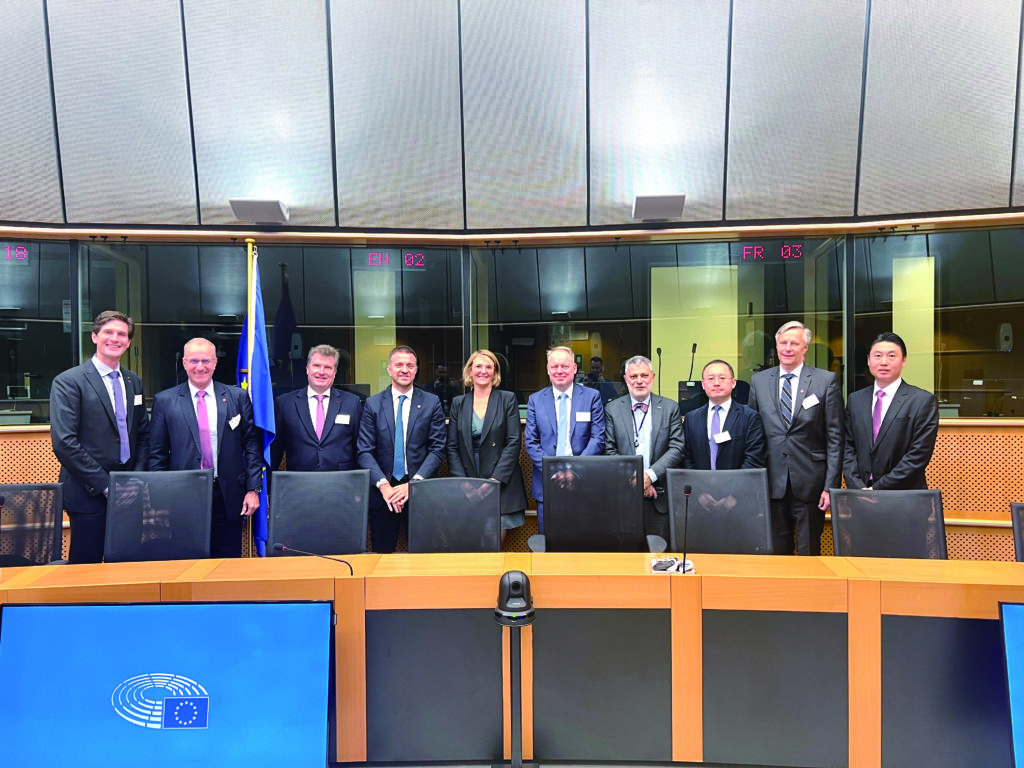
The EU Tour 2023/2024: who joined and what was our messaging to EU counterparts?
In the 2023/2024 EU Tour, the delegation was composed of 22 delegates representing 18 different sectors, including banking and securities, cosmetics, energy, environment, information and communications technology, non-banking financial institutions, and petrochemicals, among others. Several delegates also covered horizontal topics like standardisation, small and medium-sized enterprise (SME) issues, and finance and taxation.
The delegation’s overall communication centred on how China’s economic slowdown, coupled with conflicting messages from the Chinese leadership and the prevailing lack of a level playing field, has resulted in all-time low sentiment among European businesses in China. Geopolitical tensions, together with a rising trade imbalance in volume terms and the threat of overcapacity in a variety of sectors, including electric vehicles and renewables, also has negatively affected the EU-China bilateral relationship.
In this context, an open line of communication between policymakers and businesses will be key to ensuring that the EU’ s overall approach to China, and the bloc’s policies linked to de-risking and economic security, are implementable and advance European economic competitiveness. In tandem, there is also a need for EU policymakers to continue to push for increased reciprocity in their engagements with Chinese stakeholders, including a level playing field and equal market access for European companies. In this respect, establishing concrete deliverables and timelines for implementation during bilateral exchanges will be essential to addressing the current trust deficit in the bilateral relationship. Finally, both sides need to continue engagement in order to tackle global challenges such as climate change.
The EU Tour 2023/2024: what were the key outcomes?
During the week of 23rd October, the European Chamber delegation had a total of 58 meetings and events, 25 of which were with high level stakeholders. From the Commission, the delegation met with members of the cabinets of Executive Vice President (VP) for an Economy that Works for The People Valdis Dombrovskis, VP for Values and Transparency Vera Jourova and Commissioner for Economy Paolo Gentiloni. The delegation also met with the director and deputy director generals of the directorate-generals for trade (DG TRADE); internal market, industry, entrepreneurship and SMEs (GROW); international partnerships (DG INTPA); climate action (DG CLIMA); finance (DG FISMA); the environment (DG ENVI); energy (DG ENER); justice (DG JUST); research (DG RTD); transport (DG MOVE); communications (DG CONNECT); and tax (DG TAXUD). From the European Parliament, the delegation met with VP Nicola Beer, as well as several members of the European Parliament (MEPs), including the China Monitoring Group at the Committee on International Trade. Delegates also had exchanges with the Cabinet of European Council President Charles Michel and with Chinese Ambassador to the EU Fu Cong.
In addition to government representatives, the delegation met with several business associations, including the European Round Table of Industrialists, BUSINESSEUROPE, the China Chamber of Commerce in the EU, DIGITAL EUROPE and Cosmetics Europe, among others.
Delegates also had exchanges with representatives from leading European think tanks, such as Bruegel, the Mercator Institute for China Studies (MERICS), Egmont, the European Policy Centre (EPC), the European Institute for Asian Studies (EIAS) and the European Centre for International Political Economy (ECIPE) .
On conclusion of the EU Tour, President Eskelund visited Paris and Berlin. In Paris, he met with, among others, members of the cabinets of Minister for the Economy Bruno Le Maire and Prime Minister Elizabeth Borne, Organisation for Economic Co-operation and Development (OECD) Deputy Secretary General Ulrik Vestergaard Knudsen and representatives from the ministries of the Economy and Foreign Affairs. In Berlin, President Eskelund had exchanges with various business associations and think tanks, as well as with representatives at the Chancellery and the Ministry of Economic Affairs.
Overall, the mood in Europe has soured due to a variety of factors, including the growing trade imbalance, the lack of progress in moving towards a level playing field and reciprocity, and China’s stance on the Ukraine war, and there is a recognition that the bilateral relationship is at a crossroads. At the same time, although the room for cooperation has narrowed and there is a strong push to de-risk and reduce critical dependencies, EU government stakeholders generally acknowledge the need to continue to engage with China on a number of issues. Finally, in Europe, delegates found widespread recognition of the importance of understanding the situation on the ground in China. Therefore, the first-hand input Chamber representatives provided was welcomed by their EU counterparts.
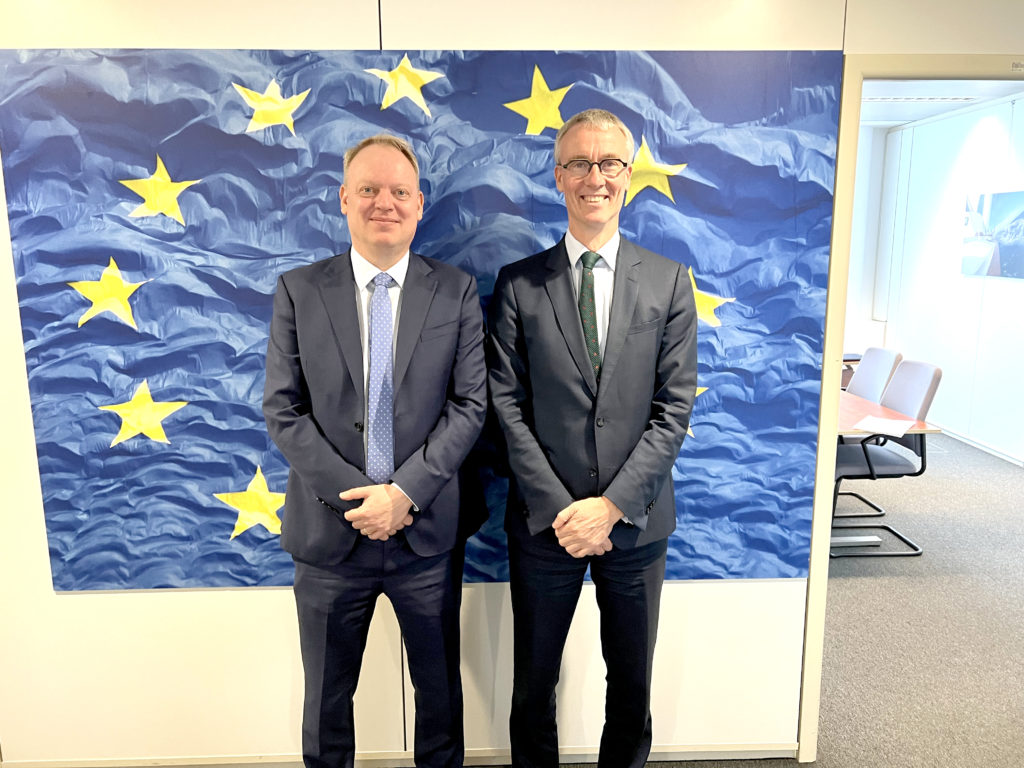
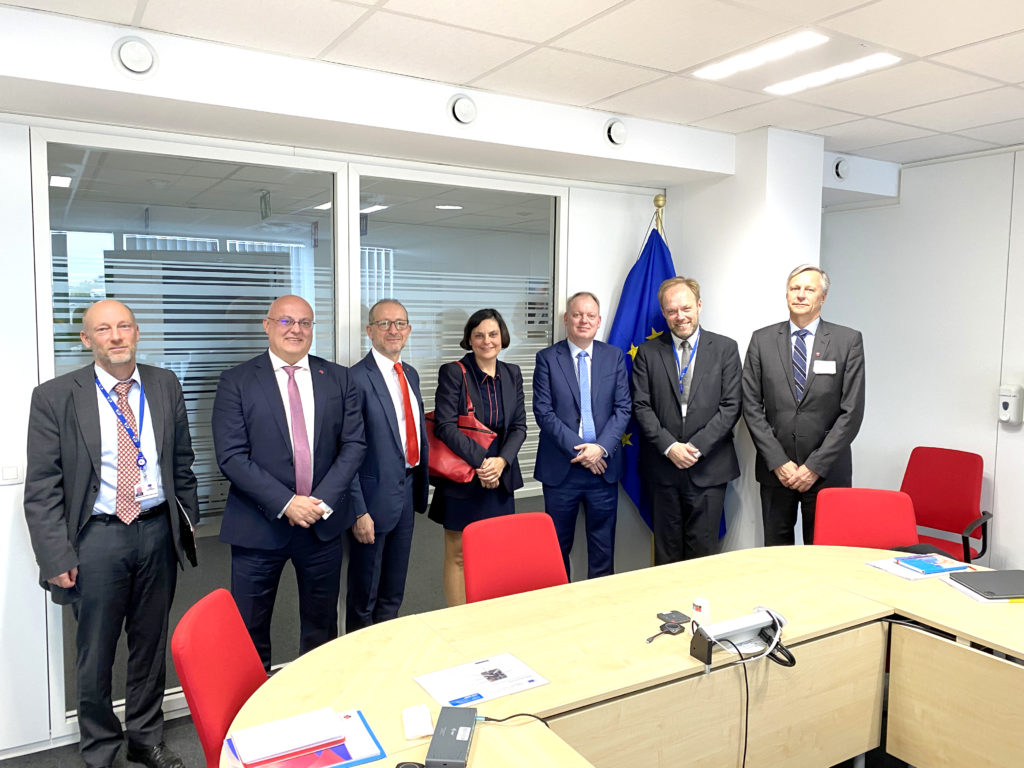
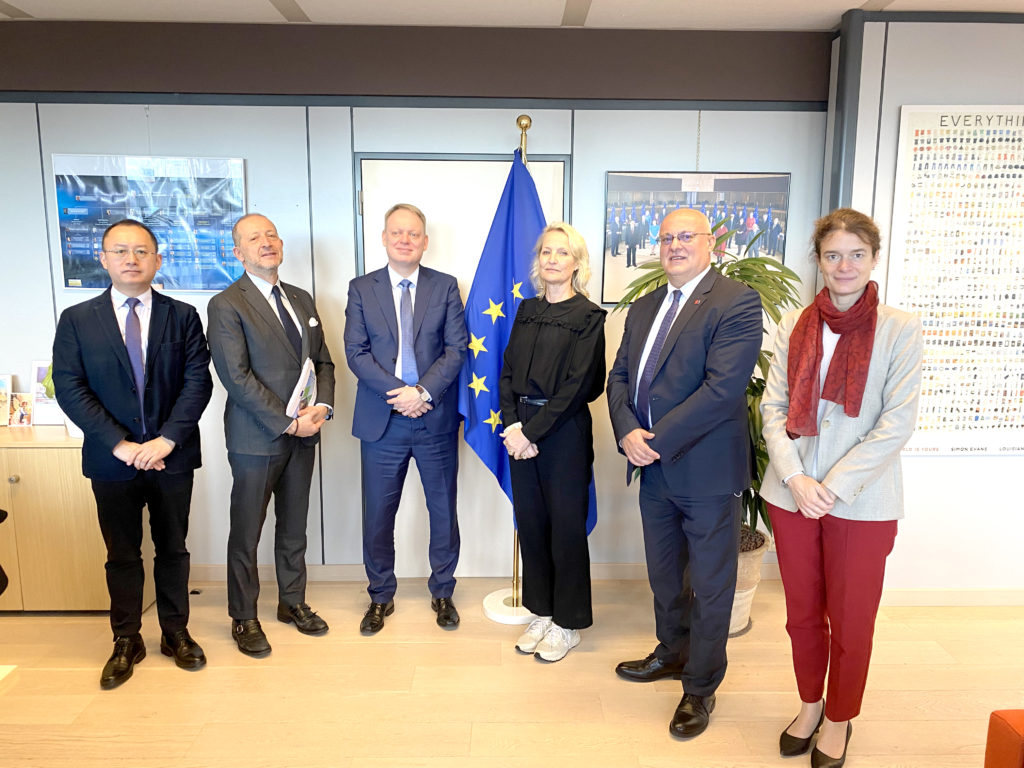
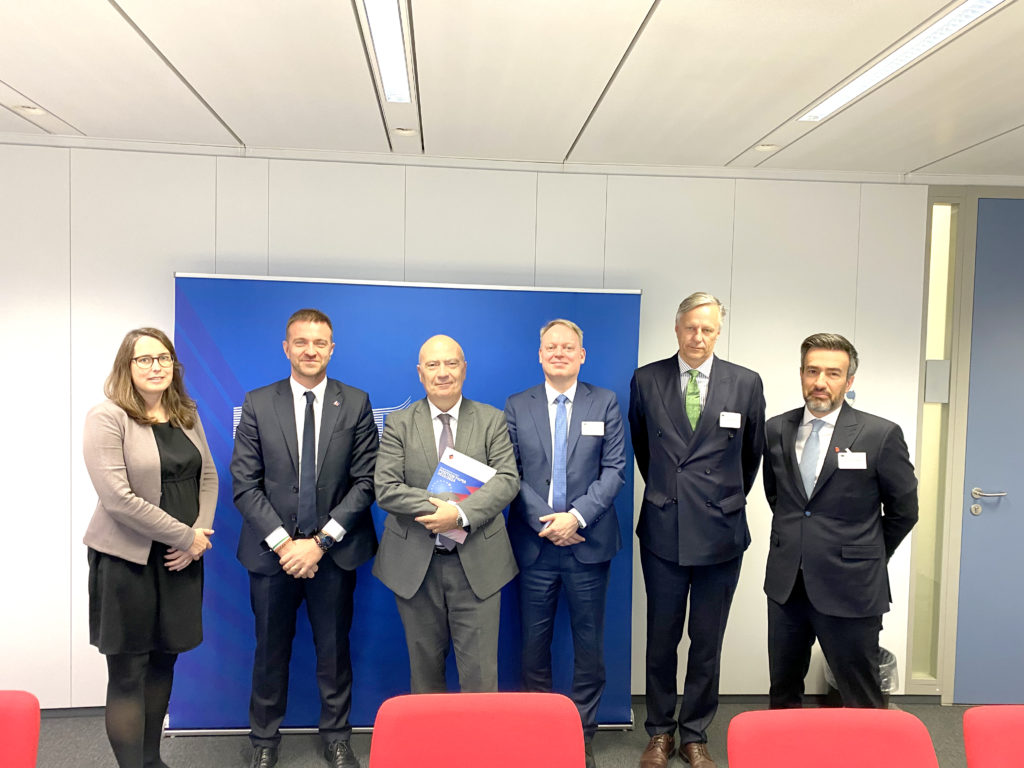
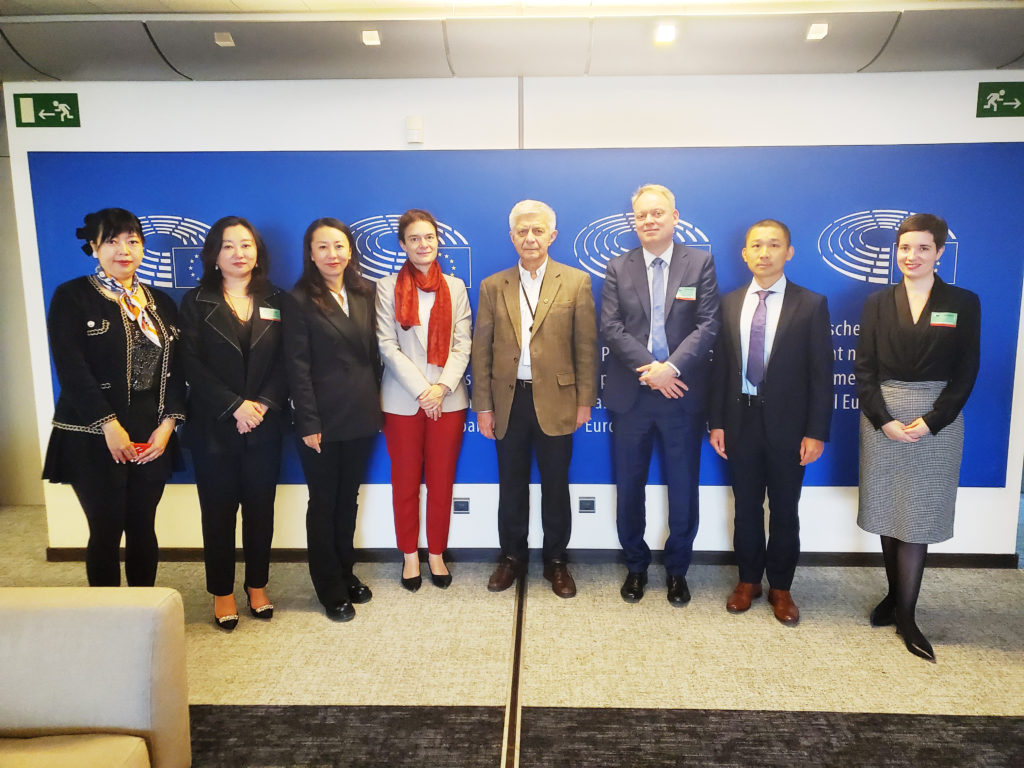
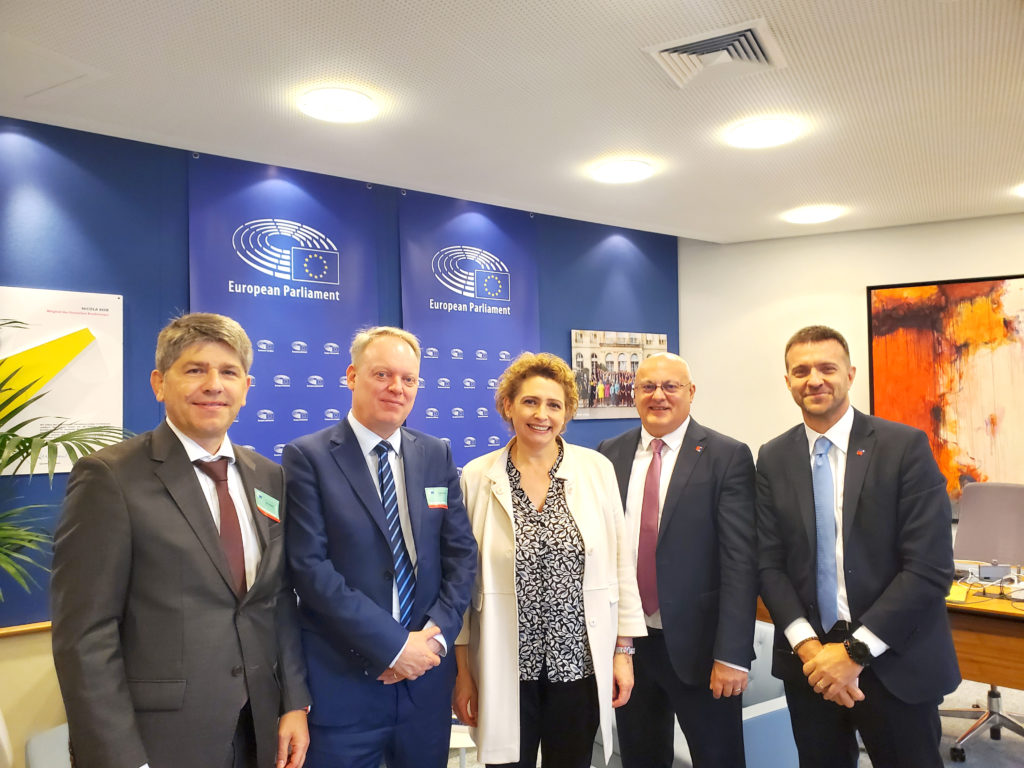
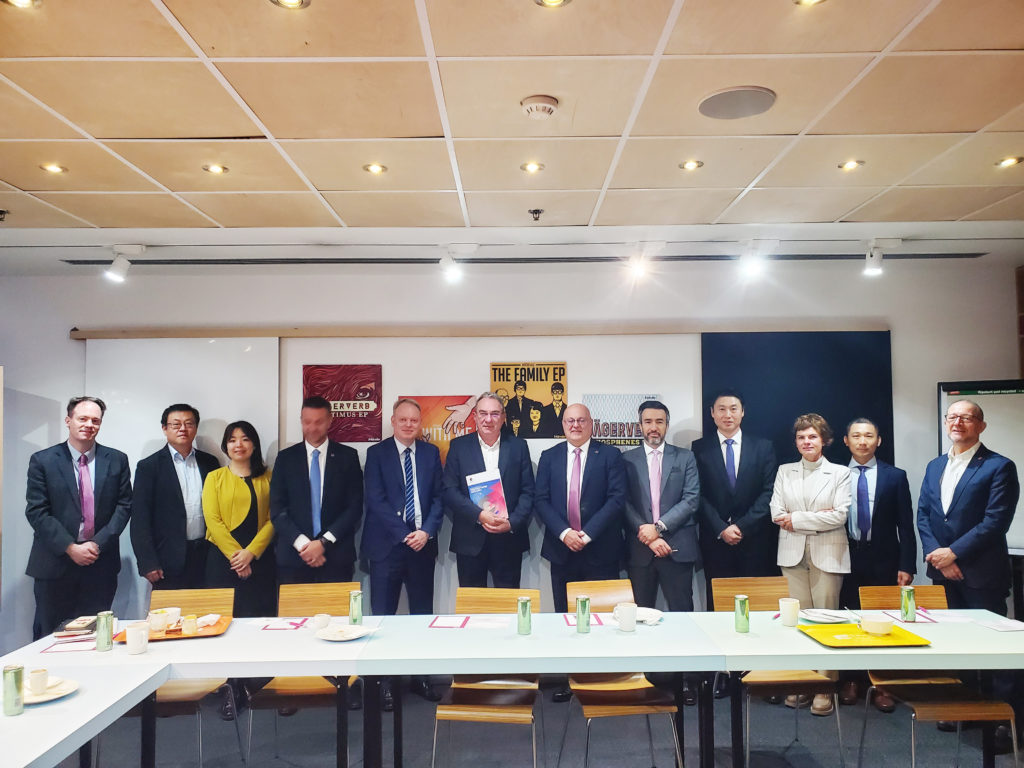
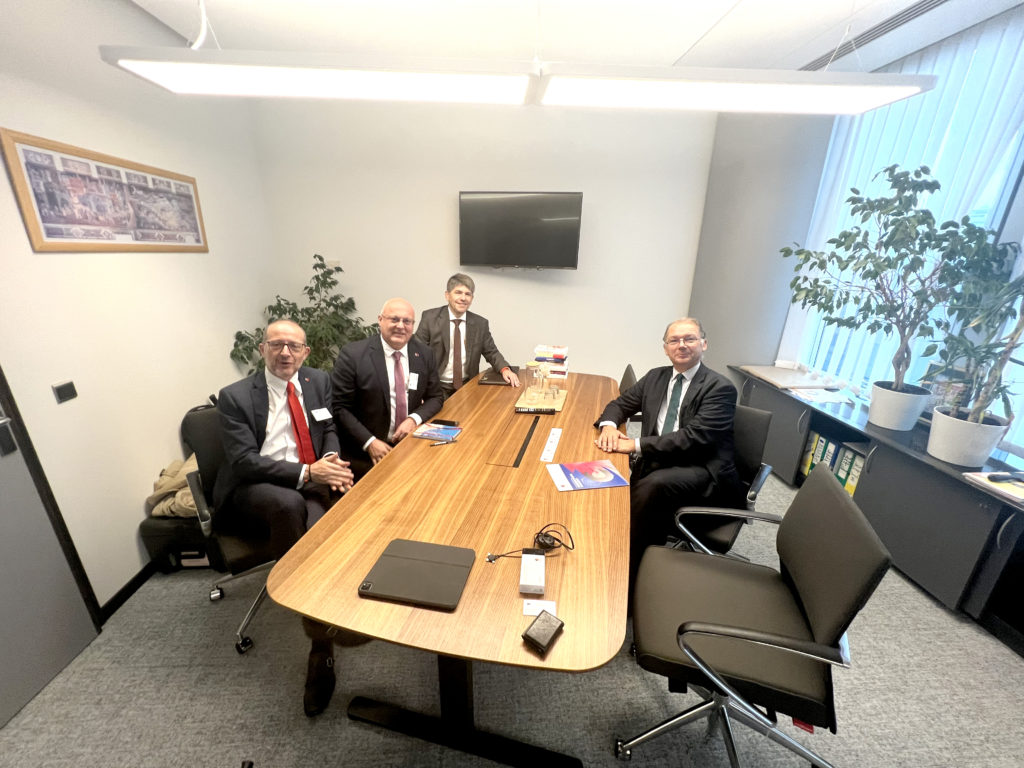
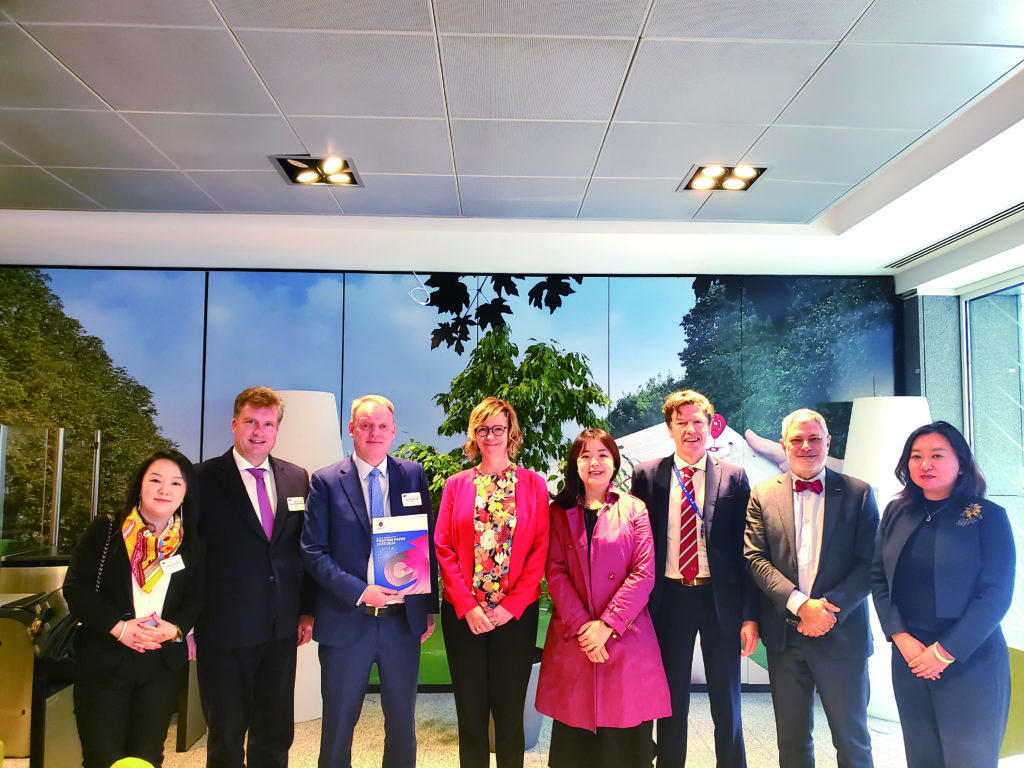
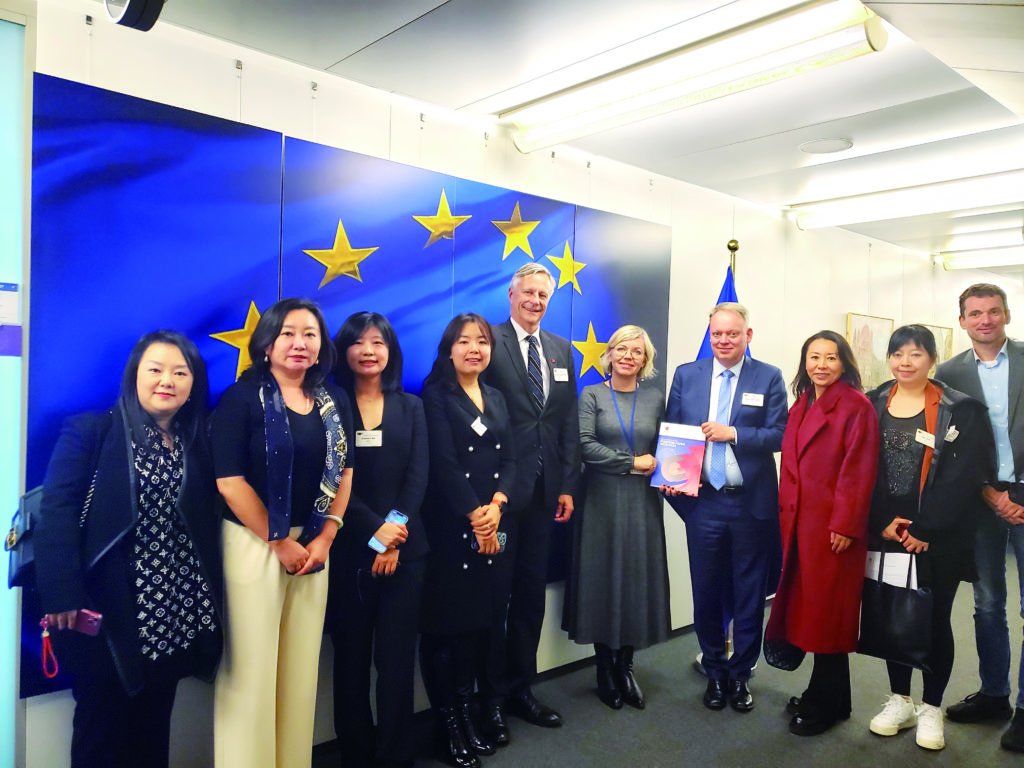
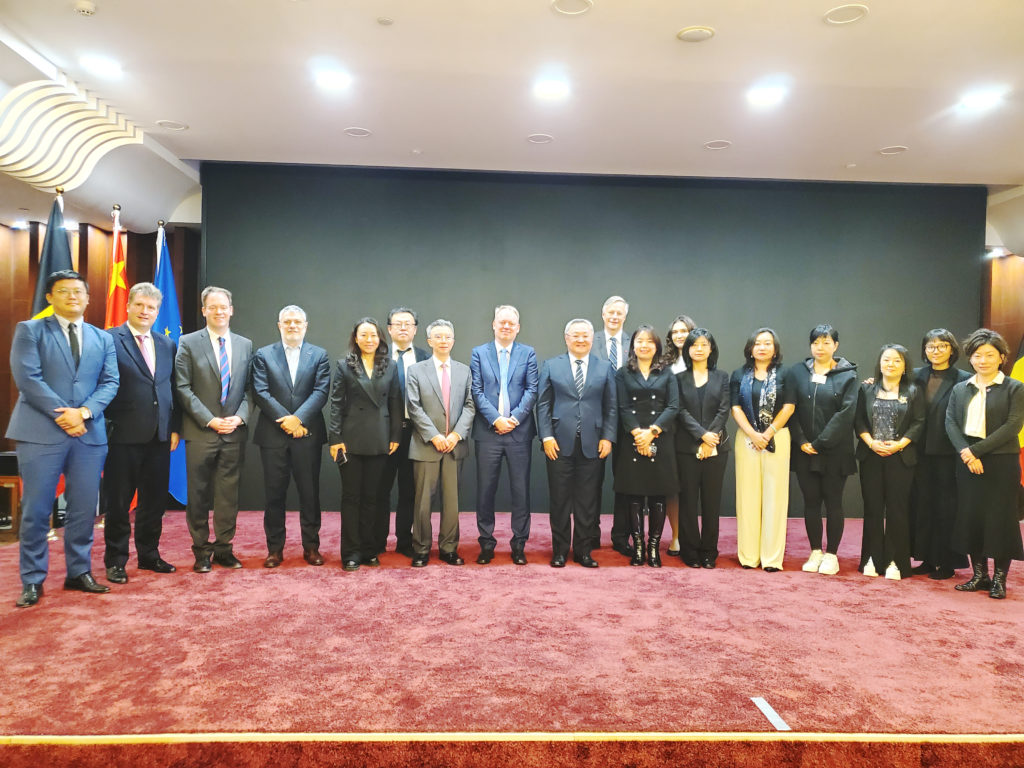
[1] In 2023, considering the lack of in-person exchanges throughout the past three years due to COVID and the transition in Chamber leadership, there were two editions of the EU Tour – one in January and one in October.


Recent Comments